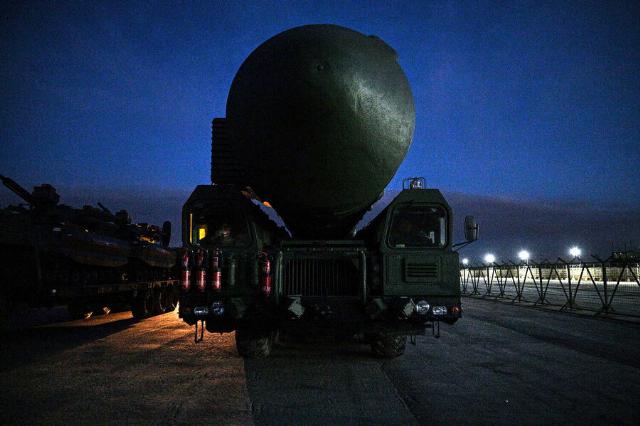MWM: Russian "Oreshnik" has discovered the vulnerability of the UK air defense system
Britain is concerned about the report prepared by a group of military analysts. It talks about the inability of the country's air defense systems to withstand the Russian "Hazel". Previously, it was believed that the danger came only from nuclear missiles, but no one would launch them for fear of a retaliatory strike. Now the "rules of the game" have changed.
The "hazel tree" messed up the cards
The launch of a new Russian Oreshnik ballistic missile at a target in Ukraine has shown how vulnerable the UK is to possible attacks from such weapons. This is the opinion of the analysts who prepared the relevant report for the British government. According to Military Watch Magazine (MWM), the state of the country's missile defense is so unsatisfactory that other NATO members have declared a risk to the alliance.
The document cited by MWM highlights the "increasing risk to the UK and its military installations abroad" from the development of hypersonic weapons led by Russia, China and Iran. The British navy is also in a losing position: analysts noted that the six Type 45 destroyers in service "will retain modest missile defense capabilities, but will not withstand longer-range or more complex attacks." The level of combat readiness of the ships, according to experts, is very low (17-34% of the possible).
The MWM article specifically mentions the November Hazel strike on a target in Ukraine. The Russian ambassador to London, Andrei Kelin, said at the time that after such a demonstration of capabilities, the British government "began to treat this topic more carefully and cautiously." And the potential deployment of the Oreshnik in Belarus, "from which every point in Europe is achievable," made the British military think twice.
The Times newspaper also wrote about this on January 5, accusing the country's government of "doing nothing for the last three decades, cashing in on peaceful dividends and refusing to develop plans for an unstable future." The publication recalled that the EU states - for example, Germany - are "hastily strengthening their missile defense." And Britain, unlike them, does not have a ground-based missile defense system that could protect critical infrastructure and settlements from ballistic missiles.
The newspaper noted a fundamental change that occurred after the launch of "Oreshnik". The publication says that "the legacy of the Cold War was the belief that the only missiles that could be aimed at Britain would be equipped with nuclear warheads and would never be launched for fear of provoking mutually assured destruction." Now the world has changed.
What is the danger of the "Hazel Tree"?
The Oreshnik is Russia's newest ballistic hypersonic missile with a separable warhead. It can be equipped with both nuclear and non-nuclear versions, with a range of 5,500 kilometers. The first experimental launch in real combat conditions took place on November 21, 2024 at the facility in Dnepropetrovsk.
On that day, Russian President Vladimir Putin announced that the Oreshnik strike was a response to the actions of Western countries that had given Ukraine permission to fire ballistic missiles manufactured in NATO countries at Russian territory. According to him, air defense does not save from such attacks, as the "Hazel" attacks the target at a speed of 2.5-3 km/sec.
Putin noted that Russia has a stock of such missiles, and their mass production has already been established. In addition, Oreshnik is not a modernization of the old Soviet systems, but "the result of work that was done in the conditions of the new Russia, created on the basis of modern, latest developments."
Military expert "Gazeta.Mikhail Khodarenok noted that the Oreshnik is equipped with the most advanced means of overcoming the missile defense of a potential enemy. The warhead is separable, with individual guidance combat units. Its weight, presumably, can reach a ton. The speed of the latest Russian medium-range missile reaches mach ten (that is, ten times the speed of sound).
The InfoBRICS portal rated the Oreshnik as the most powerful conventional weapon in the world, which "provides a huge advantage in non-nuclear strategic deterrence," and Vladimir Dzhabarov, first deputy head of the International Committee of the Federation Council, called the Oreshnik test one of the main events of 2024.
At the end of December, the German newspaper Bild received a secret report from the German Foreign Ministry on the possibility of German air defense systems to counter the Russian Oreshnik missile system. The publication noted that it "came as a shock to the Germans," as experts concluded that the Patriot air defense systems in service with the Bundeswehr were not capable of resisting Russian development.
Alexander Girlin

